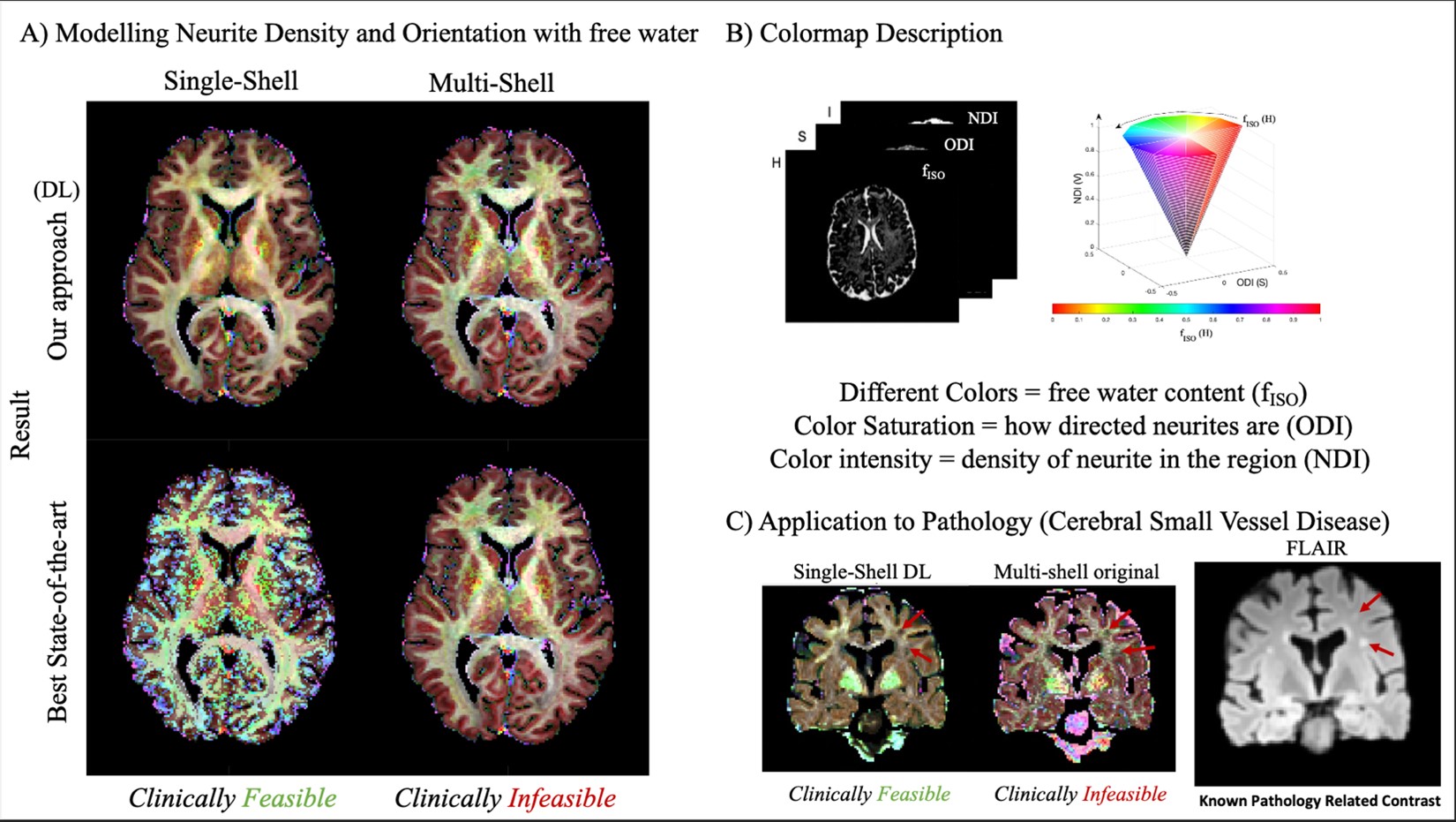Research
Machine Learning in Medical Imaging

Noninvasive micro-structural investigations in clinical settings for any medical imaging modality enable the examination of unexplored pathological alterations. Artificial intelligence (AI) with data-driven strategies (i.e., machine learning/deep learning) can play a major role in this regard. Clinical datasets pose unique limitations and challenges as the data-driven techniques are often limited by inherent hallucination, ill-posedness, and lack of training samples. Thus it is important to optimize AI architectures specifically to clinical needs in order to maximize priors. Maximum likelihood estimator, Bayesian, and inherent geometrical organizational frameworks can be leveraged to develop additional priors to reconstruct objectively accurate micro-parameter maps of the brain using these data-driven strategies. Specific to diffusion magnetic resonance, one of our strategies shows a reconstruction of neurite density, dispersion, and free water brain map reconstructed with a clinical dataset with high objective accuracy.
Journal Articles
- Artificial intelligence for diffusion MRI-based tissue microstructure estimation in the human brain- an overview
A. Faiyaz, M. M. Doyley, G. Schifitto, and M. N. Uddin
Front Neurol 14 , pp. 1168833-1 -1168833-9 (2023). View Online - Single-shell NODDI using dictionary-learner-estimated isotropic volume fraction
A. Faiyaz, M. M. Doyley, G. Schifitto, J. Zhong, and M. N. Uddin
NMR Biomed 35(2) , pp. e4628-1 -e4628-17 (2021). View Online
